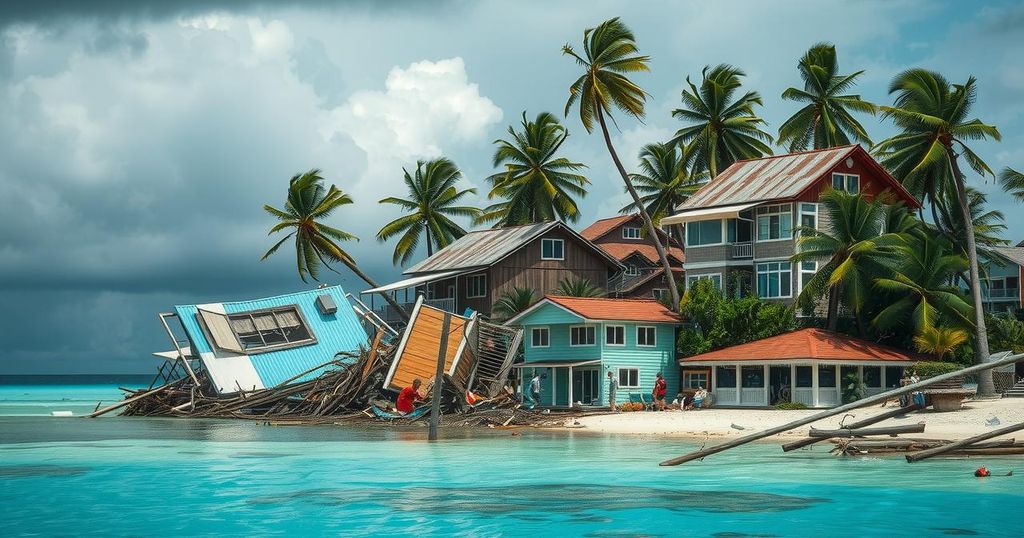Cyclone Chido Devastates Mayotte: The Worst Storm in Nearly a Century
Cyclone Chido, a Category 4 storm, devastated Mayotte in December 2022, marking the worst storm in 90 years. The cyclone claimed at least 35 lives and left widespread destruction, with many areas becoming inaccessible. The European Commission and several countries are providing emergency assistance to the affected regions.
Cyclone Chido, classified as a Category 4 storm, inflicted catastrophic damage on the French archipelago of Mayotte in December 2022. This storm was notably the worst experienced by the islands in nearly 90 years, resulting in at least 35 confirmed fatalities. Eyewitness accounts have likened the destruction to that of an atomic bomb, with winds reaching speeds of 136 miles per hour. The cyclone demolished entire neighborhoods, schools, and hospitals, leaving nearly two-thirds of the islands inaccessible due to power outages and disrupted communication systems.
The detrimental impact of Cyclone Chido raises significant concerns, particularly as it struck an already vulnerable region accustomed to extreme weather events. Just five years earlier, neighboring Mozambique endured the wrath of Cyclones Idai and Kenneth, leading to immense destruction and loss of life. Rising global temperatures contribute to the increasing severity of such storms, and the French Development Agency’s strategy for Mayotte highlights the region’s susceptibility to climate change.
In response to the devastation, the European Commission has mobilized emergency assistance for the affected communities. Several countries, including Belgium, Germany, Italy, and Sweden, have offered crucial support in the form of shelter and necessities. Moreover, the EU’s Copernicus Emergency Management Service is aiding in relief efforts by developing situational maps for both Mayotte and Mozambique. Emergency humanitarian aid amounting to nearly $1 million is being directed towards essential needs such as water, shelter, and healthcare.
The devastating impact of Cyclone Chido on Mayotte is a stark reminder of the increasing frequency and intensity of extreme weather events attributed to climate change. The archipelago, situated off the eastern coast of Africa, has experienced rising vulnerabilities linked to global warming. Prior incidents, including Cyclones Idai and Kenneth in Mozambique, highlight an alarming trend of catastrophic storms in this region. Scientific assessments indicate that warmer, wetter climates contribute to the formation of more intense tropical cyclones. This scenario necessitates urgent attention to climate mitigation and resilience strategies.
Cyclone Chido has resulted in unprecedented destruction in Mayotte, overshadowing the islands’ considerable vulnerability to climate-induced weather patterns. International aid is crucial to assist affected populations, while ongoing discussions about transitioning to renewable energy sources gain urgency. As demonstrated by the past five years of severe cyclone activity in the region, immediate action is required to address the growing threat posed by climate change and its impact on vulnerable communities.
Original Source: www.thecooldown.com




Post Comment